Ah, enemies to lovers. Only the most natural romantic arc in the history of romantic arcs. There’s nothing quite like wanting to kill—I mean kiss—the person you absolutely, remarkably, enthusiastically, vehemently, most ardently hate—I mean love—now, is there?
It’s no secret that we’re drawn to this age-old trope, which is, strangely enough, excruciatingly more delicious in a fantasy setting. Is it the angst? The slow burn? The conflict that forces our lovers to break down barriers and stubborn mentalities? The way it creates tantalizing, heedless pining that could sometimes be mistaken as rage and vice versa? Or is it, like many things in fantasy, the way it exaggerates, in this case, yearning and desire?
In my ancient Arabia inspired debut, We Hunt the Flame, Zafira and Nasir are two legends in the kingdom of Arawiya from two very different socioeconomic backgrounds. One is bound to honor, the other to death, their paths deemed never to cross until the Prince of Death is sent to kill the Huntress and fate intervenes. Or should I say, love intervenes. Throughout the story, which continues in the sequel, We Free the Stars, the two grapple between attraction and hatred—yes, there is a knife to the throat—while saving the world.
That’s one fantasy where you’ll find one of my favorite tropes. Let me help you build a stack with a few more…
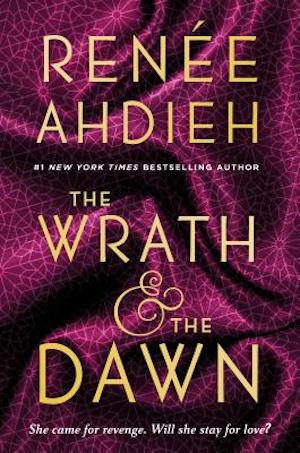
Once you’ve read We Hunt the Flame and We Free the Stars and realized you’re not quite ready to leave the deserts of Arabia, you’ll be happy to learn about The Wrath & the Dawn by Renée Ahdieh, a more romance-focused fantasy debut. It’s a twist on the classic tale of the Arabian Nights, in which a headstrong heroine marries herself to the monstrous boy-king known to wed and kill his wives at sunrise. Only this girl keeps herself alive by telling him a story and ending it on an excruciating cliffhanger for nights on end, as she plots his demise.
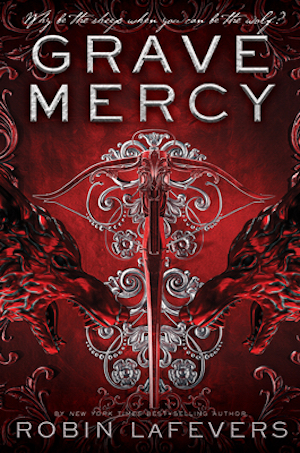
No enemies-to-lovers list can be complete without Robin LaFevers’ Grave Mercy, which, if memory serves, was the first time I’d encountered the trope and began hungering for more. In this dark story, our protagonist escapes a forced marriage to join a convent. But all is not as it seems, for this convent serves Death, and Ismae must accept a violent destiny as an assassin. She thrives in her life of blood and destruction, until she meets her latest target, who has the audacity to steal her heart.
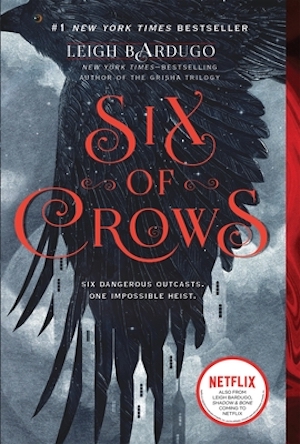
You might have already read this one, and if you haven’t, where have you been? Six of Crows from Leigh Bardugo features a few romantic narratives, and there’s no better way to establish an enemies-to-lovers trope than having our couple on two opposing sides. Nina Zenik is a Grisha, deemed a witch by the Drüskelle, a cult of witch hunters that Matthias Helvar is a part of. When a shipwreck leaves the two of them to fend for themselves in the icy wilderness, well, that’s when things get exciting. Much of their story is told through flashbacks, and I found that refreshing, given their… current circumstances when the story begins.
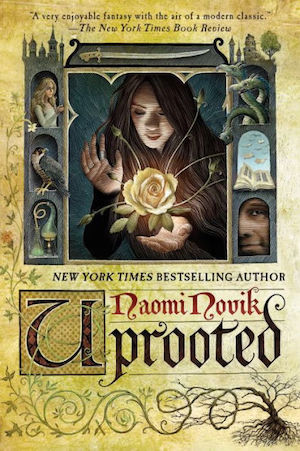
This one isn’t young adult, but I can’t make a list such as this without including Uprooted by Naomi Novik. It’s magical, rooted in mythology, and the romance, while not too heavy and sometimes subtle, is perfection. The Dragon is an enigma, a cold wizard who keeps the malevolent Wood at bay, but at a price: every ten years, a young woman must serve him, a fate as terrible as the corrupted forest itself. Our story begins when our protagonist, Agnieszka, is surprised by being chosen for the task. Bonus: it’s a standalone!
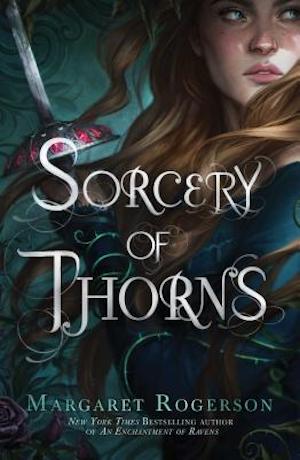
Here’s another standalone fantasy with a fairytale feel and an enemies-to-lovers romance to boot: Sorcery of Thorns by Margaret Rogerson. There are books that speak and gnash their teeth, and librarians who carry swords—like our strong-willed heroine—and their nemeses: evil sorcerers. And yep, you guessed it, the other half of our romance is one of the latter. He’s also snarky and mysterious, and though there was less angst in this romance, it was certainly fun!
***
Originally published in February 2021.
Buy the Book
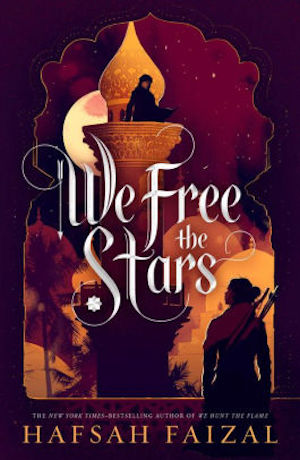

We Free the Stars
Hafsah Faizal is the New York Times bestselling author of We Hunt the Flame, and the founder of IceyDesigns, where she creates websites for authors and beauteous goodies for everyone else. When she’s not writing, she can be found designing, deciding between Assassin’s Creed and Skyrim, or traversing the world. Born in Florida and raised in California, she now resides in Texas with her family and a library of books waiting to be devoured. Visit her at her website.










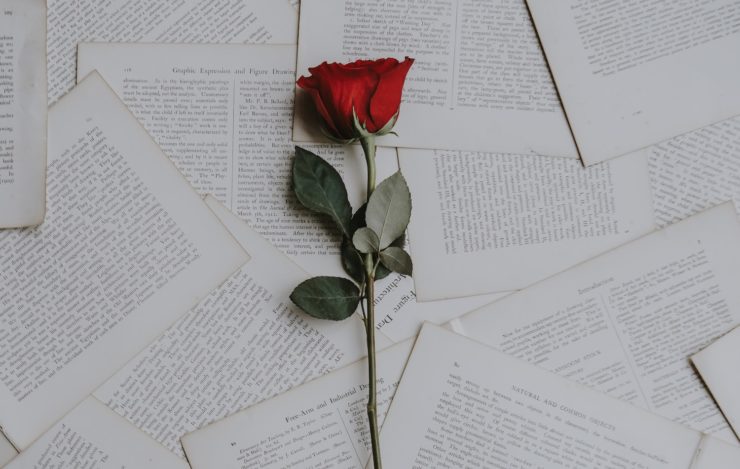
Really surprised you didn’t mention This Is How You Lose The Time War here.
Novik does the same thing in Spinning Silver, although it’s jarring because it literally comes up in the last 2 pages. If you read the novel closely, you will see signs of growing respect and admiration between Miryam and the Staryk king, but he doesn’t propose until literally the last 2 pages. People who hate this development need to read it very closely, because Miryam demands that the king be circumcised so her children can be raised as Jews (and she would not marry him if he would not bend his pride to do this) but as Novik never actually uses the word circumcised or even bris, it’s easy to miss. (Also, there is a possibility that the marriage is magically ordained as a result of Miryam’s completion of the 3 impossible tasks the king said she would have to do to be “the true Queen of the Staryk” when he meant to be mocking her. Is it true love if the magic makes you do it?)
I would make one cautionary observation regarding Uprooted: I was troubled by the romantic arc in that novel, in that it arises from a classic iteration of a power-imbalanced relationship (initially master/servant, evolving into teacher/student). I’d think a lot of modern readers, particularly female readers, would find that both problematic and potentially triggering. While Novik is certainly a skilled writer, she’s one of the last people I would have expected to build a romance plot on that kind of foundation.
That said, I’m evidently in the minority on this point, though I remain very curious about why few if any other readers seem to have had the problem I did.
John C Bunnell I agree with you, as a result of that, and of some too stupid to live behaviour by the heroine, the book has been sat in my “maybe I’ll finish it at some point” pile for years.
@3,4
I haven’t read Novik specifically, yet as life-long consumer of problematic content, I may speculate that in romance novels, sometimes problematic and triggering and uneasy IS a big part of the appeal. Just like erotic fantasies often contain elements that would be completely wrong and unacceptable to the exact same person in any other context. We enjoy dangerous thrills in many contexts: The whole genre of horror, action/adventure, or heroic stories often contain adversity, danger, and pain we would never want to experience in real life. Although sometimes, they also help people to process the difficult situations they did experience. I think sometimes people do not apply the same lens to romance.
The problems arise, when what’s ultimately an erotic fantasy, becomes conflated with a kind of a blueprint or example or normalization for how to have a relationship.
#5: I’d be happier with that observation if Uprooted had been published as a romance novel, because I’d agree that there are significant parts of the genre-romance territory in which the power-imbalance trope is essentially baked into the conventions of the category. (The entire “heroine vs. billionaire” subgenre comes to mind….)
The trouble is that Uprooted wasn’t published as genre romance. It was written and marketed – properly, I think – as fantasy, in a generation where the power-imbalance trope is now regarded as frequently if not intrinsically problematic. See, for instance, the degree to which Anne McCaffrey’s Pern series (with which Novik’s books currently share a publisher) is now regarded as having aged badly as a result of problematic romantic plotlines involving power imbalance.
Moreover, Novik is a major figure in the evolution and social acceptance of fanfiction, being a major figure in the founding of the Organization for Transformative Works and its most prominent satellite, the Archive of Our Own. And today’s fanfic community has gone well out of its way to take a sensitive approach to modern invocations of potentially problematic tropes, such that writers who make use of them are expected (indeed, required on AO3, and broadly encouraged elsewhere) to warn for potentially triggering content in their works.
I emphatically do not mean to suggest here that Novik shouldn’t have made use of the power-imbalance trope in the first place. I merely observe that given Uprooted‘s usage of that trope, I’d have expected modern reviewers – amateur and professional alike – to take more note of that usage in their discussions of the novel, as a service to readers akin to the formal warning protocols in place for fanworks on AO3. (FWIW, speaking only for myself, Novik’s execution was skillful enough that the power-imbalance issues didn’t break the novel for me – but she skated close enough to the edge that I’ve always been careful to mention the issue whenever I’m asked about the book by someone who hasn’t read it.)
No love (sorry, not sorry) for Kate Elliott’s Spiritwalker series (starting with _Cold Magic_)?
In view of the discussion in previous comments I should probably disclose that this one starts out as an arranged marriage (it turns out *neither* participant was asked their opinion) — the duel to the death comes later.
_The Cloud Roads_ doesn’t quite qualify, because Moon doesn’t trust *anyone*, it’s not particularly personal, but “mistrust to lovers” might still appeal to some of the same audiences. And I just really, really like it in general.